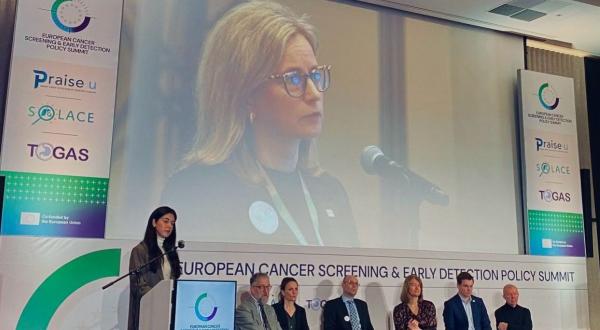Current Issues in Science Communication Discussed at RSU Research Breakfast
On Wednesday, 7 October the Rīga Stradiņš University (RSU) Research Breakfast was held online via Zoom. The topic of this particular Research Breakfast was to discuss the strategic positioning of Latvian research, and a presentation of the findings of the National Research Programme (NRP).
During the event the RSU research team met Gita Rēvalde, the new Director of the Latvian Council of Science and discussed the strategic positioning of Latvian research within the European Research Area and science communication.
The Tasks of the Latvian Council of Science
Rēvalde briefed those in attendance on the Latvian Council of Science’s new vision and strategy as there are changes in the structure and functions currently underway. Six expert commissions have been established, amongst them: a commission in natural sciences, in medicine and in health sciences, etc., represented by the best national researchers. An expert advisory board has also been created. Alongside other functions, the Latvian Council of Science implements science and technology development policies and scientific research programmes. From 1 June 2021, the Latvian Council of Science plans to undertake the management and supervision of a number of research projects and funds, for example, the functions of the EU Horizon National Contact Point. The most important tasks are to increase the role of expert commissions and ensure that scientists are represented in decision-making and policy-making.
Implementing NRP
A representative from the Latvian Council of Science, Ingmārs Kreišmanis, gave a presentation on the implementation of NRP projects to mitigate the consequences of COVID-19. 16 institutions are going to implement 10 projects over a six-month period, and the total budget that has been allocated reaches 5m euros. Currently, only the first results are available. On 1 December, the final scientific reviews will be submitted, whereas an informative report and a final content report will be submitted to the Cabinet of Ministers by the end of December. RSU is the leader of three NRP projects.
Societal attitudes towards science
The Rector of Vidzeme University of Applied Sciences Gatis Krūmiņš gave a presentation on attitudes in Latvian society towards science and the resulting strategic science communication findings. Researchers from the Vidzeme University of Applied Sciences have conducted a survey and according to their findings more than a half of respondents are interested in science and science communication, about a third admitted to having no knowledge or understanding of science, whereas 8% of respondents question the need for science. The target audience of modern science communication is researchers themselves as well as decision makers and influencers, entrepreneurs, young prospective scientists and the diaspora.
Why is science communication necessary?
One of the participants of the study, Zigurds Zaķis, who is a representative of the company Dzeltenā Zemūdene, explained the need of science communication. Science communication enhances attitudes towards science, creates research culture, promotes the representation of Latvian science abroad and creates new mechanisms of cooperation. Good communication serves to create a story, it informs and simplifies without losing the essence, it can illustrate science and associate it people’s everyday needs by showing its value.
Four values
Four strategic scientific narratives, or values have been developed - a path to an integrated society, creating values, a society of information and a European dimension. These narratives can also be applied to communication aimed to address COVID-19, and researchers have developed a guide for this purpose. Zaķis pointed out that nothing permanent can be achieved in the short-term. Building information culture is a long-term process.
Later on, RSU Associate Professor Ivars Vanadziņš briefed attendants on the implementation of the NRP project Integration of reliable technologies for protection against Covid-19 in healthcare and high risk areas. The Research Breakfast was concluded by a discussion on the communication of NRP project results and the importance of science communication in general.
Related news
 RSU Professor Maija Radziņa represents Latvia at EU cancer screening summitResearch, International Cooperation
RSU Professor Maija Radziņa represents Latvia at EU cancer screening summitResearch, International Cooperation


